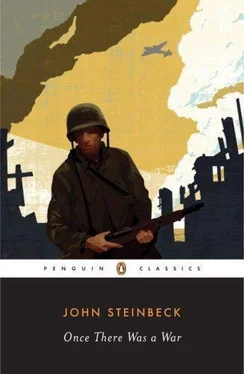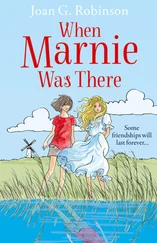John Steinbeck - Once there was a war
Здесь есть возможность читать онлайн «John Steinbeck - Once there was a war» весь текст электронной книги совершенно бесплатно (целиком полную версию без сокращений). В некоторых случаях можно слушать аудио, скачать через торрент в формате fb2 и присутствует краткое содержание. Город: New York, Год выпуска: 1960, Издательство: Bantam Books, Жанр: Классическая проза, на английском языке. Описание произведения, (предисловие) а так же отзывы посетителей доступны на портале библиотеки ЛибКат.
- Название:Once there was a war
- Автор:
- Издательство:Bantam Books
- Жанр:
- Год:1960
- Город:New York
- ISBN:нет данных
- Рейтинг книги:3 / 5. Голосов: 1
-
Избранное:Добавить в избранное
- Отзывы:
-
Ваша оценка:
- 60
- 1
- 2
- 3
- 4
- 5
Once there was a war: краткое содержание, описание и аннотация
Предлагаем к чтению аннотацию, описание, краткое содержание или предисловие (зависит от того, что написал сам автор книги «Once there was a war»). Если вы не нашли необходимую информацию о книге — напишите в комментариях, мы постараемся отыскать её.
Once there was a war — читать онлайн бесплатно полную книгу (весь текст) целиком
Ниже представлен текст книги, разбитый по страницам. Система сохранения места последней прочитанной страницы, позволяет с удобством читать онлайн бесплатно книгу «Once there was a war», без необходимости каждый раз заново искать на чём Вы остановились. Поставьте закладку, и сможете в любой момент перейти на страницу, на которой закончили чтение.
Интервал:
Закладка:
The story of its popularity in Africa got back to Berlin, and Madame Goering, who used to be an opera singer, sang the song of the inconstant “Lilli Marlene” to a very select group of Nazis, if there is such a thing. Instantly the song was popular and it was played constantly over the German radio until Goering himself grew a little sick of it, and it is said that, since inconstancy is a subject which is not pleasant to certain high Nazi ears, it was suggested that the song be quietly assassinated. But meanwhile “Lilli Marlene” had got out of hand. Lala Anderson was by now known as the “Soldiers’ Sweetheart.” She was a pin-up girl. Her husky voice ground out of portable phonographs in the desert.
So far, “Lilli” had been solely a German problem, but now the British Eighth Army began to take prisoners and among the spoils they got “Lilli Marlene.” And the song swept through the Eighth Army. Australians hummed it and fastened new words to it. The powers hesitated, considering whether it was a good idea to let a German song about a girl who did not have all the sterling virtues become the favorite song of the British Army, for by now the thing had crept into the First Army and the Americans were beginning to experiment with close harmony and were putting an off-beat into it. It wouldn’t have done the powers a bit of good if they had decided against the song.
It was out of hand. The Eighth Army was doing all right in the field and it was decided to consider “Lilli Marlene” a prisoner of war, which would have happened anyway, no matter what the powers thought about it. Now “Lilli” is getting deeply into the American Forces in Africa. The Office of War Information took up the problem and decided to keep the melody, but to turn new words against the Germans. Whether this will work or not remains to be seen. “Lilli Marlene” is international. It is to be suspected that she will emerge beside the barrack walls — young and fair and incorruptly inconsistent.
There is nothing you can do about a song like this except to let it go. War songs need not be about the war at all. Indeed, they rarely are. In the last war, “Madelon” and “Tipperary” had nothing to do with war. The great Australian song of this war, “Waltzing Matilda,” concerns itself with sheep-stealing. It is to be expected that some groups in America will attack “Lilli,” first, on the ground that she is an enemy alien, and, second, because she is no better than she should be. Such attacks will have little effect. “Lilli” is immortal. Her simple desire to meet a brigadier is hardly a German copyright. Politics may be dominated and nationalized, but songs have a way of leaping boundaries.
And it would be amusing if, after all the fuss and heiling, all the marching and indoctrination, the only contribution to the world by the Nazis was “Lilli Marlene.”
WAR TALK
LONDON, July 13, 1943 —
It is interesting to see that the nearer one comes to a war zone the less one hears of grand strategy. There is more discussion of tactics and the over-all picture in the Stork Club on a Saturday night than in the whole European theater of operations. This may be, to a certain extent, because of a lack of generals to give the strategists a social foundation. For that matter, there are more generals in the Carlton Hotel in Washington at lunch time than in all the rest of the world.
This narrowing point of view may be geographical. Papers in England are not avidly seized, and as one gets down to the coast where some action is going on all the time, the discussion of the war dwindles until it almost disappears. It is further interesting how completely civilian ferocity disappears from the soldier or the sailor close to action or in action.
In the concrete wardroom over the berths of the motor torpedo boats the young men gather to drink beer. They are very young men, but there is an age in their faces that comes of having put their lives out at stake too often. The dice have rolled right for some of these young men so far, but a seven has turned up for too many of their friends for them to take the game or their luck for granted. The little boats are not heavily armed for defense, but they carry terrible blows in their torpedo tubes. They are the only lightweights in the world that can deliver a heavyweight punch. For their own safety they have only their speed and the cleverness of their crews.
Tonight they are going out on what the men call a Thing. A Thing is something bigger than a Scramble, but slightly less large than The Thing. A Thing is likely to be an attack on a German convoy, slipping secretly in the night through the Channel, but heavily armed and heavily guarded and, moreover, hugging the coast so that they are under the shore guns most of the time. And against them these tiny ships are going to dodge in under the shellfire, twist and turn in the paths of the tracers, and, finally, shoot their torpedoes into the largest ship they can find and then race for home.
In the wardroom the men speak with a kind of intense gaiety. You never hear the enemy discussed. By unstated agreement or because there has just been too much war they do not discuss war. The enemy is Jerry, or the Boche, and his name is spoken as something disembodied and vague. Jerry is a problem in navigation, a job, a danger, but not much more personalized than any other big and dangerous job. The men suffer from strain. It has been so long applied that they are probably not even conscious of it. It isn’t fear, but it is something you can feel, a bubble that grows bigger and bigger in your mid-section. It puffs up against your lungs so that your breathing becomes short. Sitting around is bad. You have a tendency to think that everything is very funny. This is the time to bring out the frowsy story that wouldn’t do so well at any other time. It will get a roar of laughter now.
There is a little bar in the wardroom where a Wren serves the flat beer that no one likes. The beer isn’t good, but everyone has a glass of it, and it is hard to swallow, because so much of you is taken up with the big bubble.
On the wall there is a clock and the hands creep slowly, much too slowly, toward the operation time. The waiting is the terrible part. The weather reports come in, There is wind, but perhaps not enough to cancel the Thing. Dozens of the little ships are going out. It is an Allied operation. There are Dutch boats, and Polish boats, and English. The Poles are great fighters. This is their kind of work. When the little ships attacked the Scharnhorst , slipping through the Channel, it is said that a Polish sailor was down on the prow of his torpedo boat, calmly firing at the great steel battleship with a rifle. The Dutch have a calm, cold courage, and the British pretend, as usual, it is some kind of a garden party they are going to.
At ten minutes to the time the men start to get into their suits, complicated coats and trousers of oilskin that tie closely around the ankles. A towel is wrapped around the neck and the coat buttoned in tight about it. The little ships are wet. The green water comes over the bow constantly and there isn’t much cover. In action the men will presumably wear helmets on their heads, but this is only a presumption. Now they stand about, padded and wadded, their arms a little out from their sides, held out by the thick clothing. The leader of this group is a young man of great age. He is twenty-two and he came from a destroyer to the little MTBs. The big hand of the clock creeps on to the time of departure. The commander says, almost casually, and just as it is on the minute, “All ready?”
All the young men stride heavily out of the door, down the steps to the hidden pens where the little stinging fish lie. There is a roar as engine after engine starts. Now the bubble bursts in your stomach and you can breathe again. Everything is all right. It’s a good night, misty and with little visibility. The boats back, one by one, from their berths and fall into line. A tiny blinker signals from the leader, the great motors thunder, the boats leap forward, and the white wake Vs out. The green water comes in over the bow. The crew huddles down, braced against the wind and the sea — no one has mentioned the war.
Читать дальшеИнтервал:
Закладка:
Похожие книги на «Once there was a war»
Представляем Вашему вниманию похожие книги на «Once there was a war» списком для выбора. Мы отобрали схожую по названию и смыслу литературу в надежде предоставить читателям больше вариантов отыскать новые, интересные, ещё непрочитанные произведения.
Обсуждение, отзывы о книге «Once there was a war» и просто собственные мнения читателей. Оставьте ваши комментарии, напишите, что Вы думаете о произведении, его смысле или главных героях. Укажите что конкретно понравилось, а что нет, и почему Вы так считаете.









